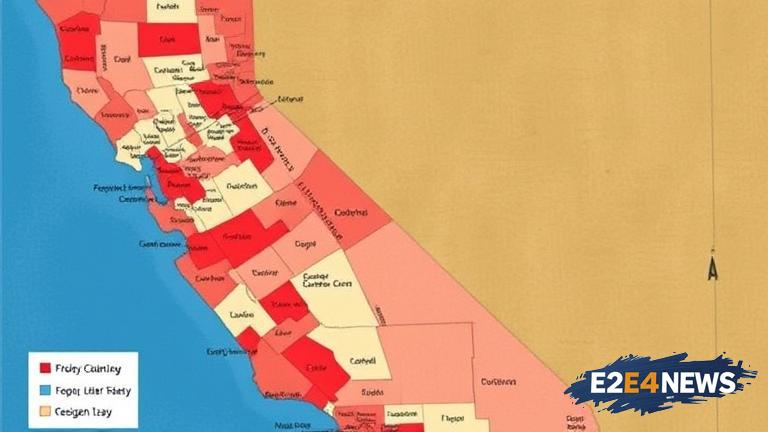The California Republican Party has taken another step to challenge the state’s newly drawn redistricting maps, filing a second lawsuit in an effort to block their implementation. The lawsuit, filed in a California court, alleges that the maps were drawn in a way that unfairly favors Democratic candidates and disenfranchises Republican voters. The California Republican Party claims that the maps were the result of a partisan gerrymandering process, which is prohibited by the state’s constitution. The party argues that the maps were drawn to maximize the number of Democratic seats in the state legislature and Congress, while minimizing the number of Republican seats. The lawsuit also alleges that the maps split communities of interest and fail to take into account the state’s diverse population. The California Republican Party is seeking to have the maps thrown out and replaced with new ones that are more fair and representative of the state’s voters. This is the second lawsuit filed by the party to challenge the redistricting maps, with the first one being filed earlier this year. The party has been vocal about its opposition to the maps, which were drawn by a commission made up of Democrats, Republicans, and independents. The commission was tasked with drawing maps that were fair and representative of the state’s population, but the California Republican Party claims that they failed to do so. The lawsuit is the latest development in a long-running battle over redistricting in California, which has been a key issue in the state’s politics for years. Redistricting is the process of drawing new maps for legislative and congressional districts, which is done every 10 years after the census. The process is important because it determines which communities are represented by which elected officials and can have a major impact on the balance of power in the state legislature and Congress. The California Republican Party has been critical of the redistricting process in the state, which they claim is biased towards Democrats. The party has argued that the process is flawed and that the maps are not representative of the state’s voters. The lawsuit is likely to be closely watched by politicians and voters in California, as it has the potential to impact the balance of power in the state legislature and Congress. The outcome of the lawsuit is uncertain, but it is clear that the California Republican Party is committed to challenging the redistricting maps and ensuring that the state’s voters are fairly represented. The party has a long history of advocating for fair and transparent redistricting processes, and this lawsuit is the latest example of their efforts. The lawsuit is also likely to have implications for the state’s elections, as the redistricting maps will determine which candidates are running in which districts. The California Republican Party is hoping that the lawsuit will lead to the creation of new maps that are more fair and representative of the state’s voters. The party is committed to ensuring that the state’s voters have a voice in the redistricting process and that the maps are drawn in a way that is fair and transparent. The lawsuit is a key part of the party’s efforts to promote fair and transparent government in California, and they are hopeful that it will lead to positive changes in the state’s redistricting process. The California Republican Party is also calling on the state’s voters to get involved in the redistricting process and to make their voices heard. The party believes that the redistricting process should be transparent and fair, and that the state’s voters should have a say in how the maps are drawn. The lawsuit is a key part of the party’s efforts to promote voter engagement and participation in the redistricting process. The California Republican Party is committed to ensuring that the state’s voters are fairly represented and that the redistricting process is fair and transparent. The party is hopeful that the lawsuit will lead to positive changes in the state’s redistricting process and that the state’s voters will have a stronger voice in the process.
